
Neiafu: The Enchanting Heart of the Vava'u Islands
Neiafu, the bustling capital of Tonga's Vava'u group, is a hidden gem in the South Pacific. This charming town is nestled around the picturesque Port of Refuge, renowned as one of the most beautiful harbors in the world. A haven for sailors and adventurers, Neiafu offers a perfect blend of natural beauty, rich culture, and a laid-back island vibe. Exploring Neiafu reveals a tapestry of experiences, from the vibrant local markets filled with fresh produce and handicrafts to the friendly and welcoming locals who are always eager to share their traditions. The town itself is a delightful mix of colorful buildings, quaint cafes, and scenic viewpoints offering breathtaking panoramas of the surrounding turquoise waters and lush islands. For those seeking adventure, Neiafu is a gateway to some of the world's best whale-watching experiences. Between July and October, humpback whales migrate to the warm Tongan waters, and visitors can embark on unforgettable whale-swimming tours. The nearby coral reefs and underwater caves also provide excellent opportunities for snorkeling and diving, revealing a mesmerizing world of marine biodiversity. Whether you're enjoying a leisurely stroll along the waterfront, indulging in delicious Tongan cuisine, or setting out on a sailing expedition, Neiafu promises an authentic and unforgettable island experience.
Local tips in Neiafu
- Visit between July and October for the best whale-watching opportunities.
- Explore the local markets early in the morning for fresh produce and unique handicrafts.
- Take a boat tour to explore the nearby coral reefs and underwater caves.
- Try the local dish, 'ota ika,' a Tongan ceviche made with fresh fish marinated in coconut milk and citrus.
- Rent a scooter or bike to explore the town and surrounding areas at your own pace.
Neiafu: The Enchanting Heart of the Vava'u Islands
Neiafu, the bustling capital of Tonga's Vava'u group, is a hidden gem in the South Pacific. This charming town is nestled around the picturesque Port of Refuge, renowned as one of the most beautiful harbors in the world. A haven for sailors and adventurers, Neiafu offers a perfect blend of natural beauty, rich culture, and a laid-back island vibe. Exploring Neiafu reveals a tapestry of experiences, from the vibrant local markets filled with fresh produce and handicrafts to the friendly and welcoming locals who are always eager to share their traditions. The town itself is a delightful mix of colorful buildings, quaint cafes, and scenic viewpoints offering breathtaking panoramas of the surrounding turquoise waters and lush islands. For those seeking adventure, Neiafu is a gateway to some of the world's best whale-watching experiences. Between July and October, humpback whales migrate to the warm Tongan waters, and visitors can embark on unforgettable whale-swimming tours. The nearby coral reefs and underwater caves also provide excellent opportunities for snorkeling and diving, revealing a mesmerizing world of marine biodiversity. Whether you're enjoying a leisurely stroll along the waterfront, indulging in delicious Tongan cuisine, or setting out on a sailing expedition, Neiafu promises an authentic and unforgettable island experience.
When is the best time to go to Neiafu?
Iconic landmarks you can’t miss
Mapu'a Vaea Blowholes
Discover the breathtaking Mapu'a Vaea Blowholes in Tonga, where nature's power creates stunning ocean displays amidst beautiful coastal scenery.
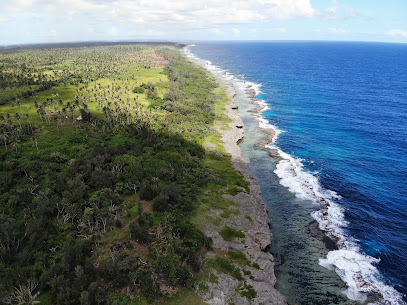
Royal Palace of Tonga
Discover the Royal Palace of Tonga, a historical treasure showcasing the rich heritage and royal traditions of the Tongan monarchy.
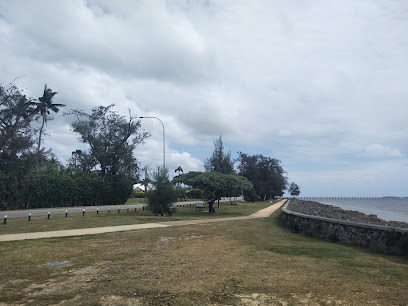
Anahulu Cave
Explore the enchanting Anahulu Cave in Tonga, a stunning underground haven filled with crystal-clear waters and rich cultural history.
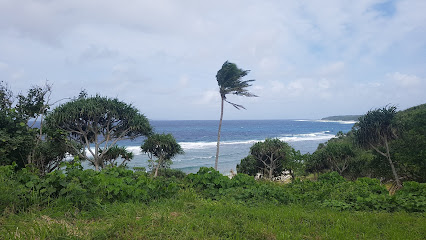
Royal Tombs
Discover the Royal Tombs of Nuku'alofa, a historical landmark that unveils Tonga's royal heritage and cultural significance amidst serene landscapes.
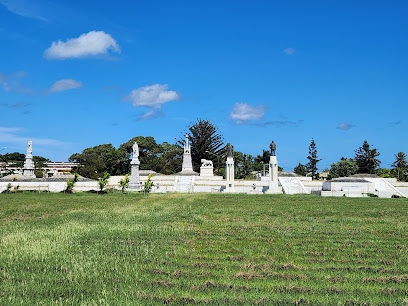
Ancient Tonga
Explore the rich heritage and stunning landscapes of Ancient Tonga, a must-visit tourist attraction in Nuku'alofa, revealing the beauty of Tongan culture.
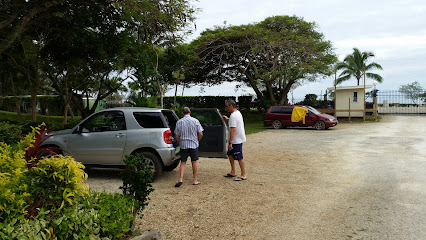
Ha'amonga 'a Maui Trilithon
Experience the historical wonder of Ha'amonga 'a Maui Trilithon, Tonga's ancient stone structure symbolizing Polynesian heritage and ingenuity.
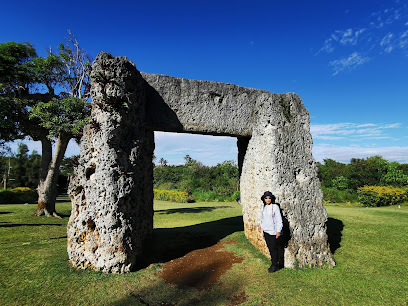
3 Headed Coconut
Explore the captivating 3 Headed Coconut in Matahau, a natural wonder that tells the story of Tonga's rich culture and stunning landscapes.
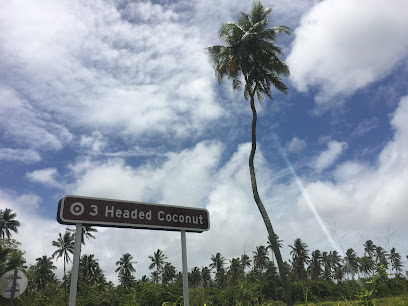
Captain Cook Landing Site
Explore the Captain Cook Landing Site in Tonga, a historical landmark that celebrates maritime exploration and the rich culture of the South Pacific.
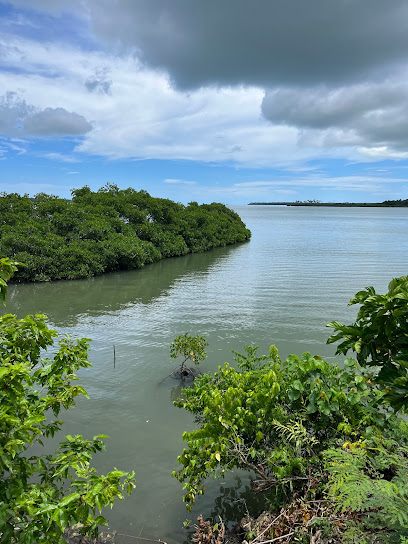
Tonga National Museum
Explore the rich cultural heritage of Tonga at the National Museum in Nuku'alofa, showcasing artifacts, art, and historical insights.
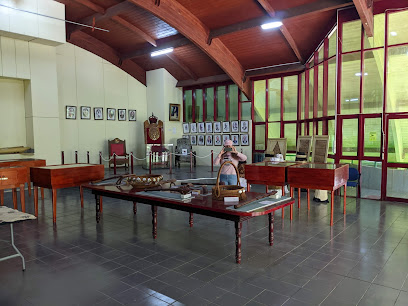
Maka Fa'akinanga
Discover the rich heritage of Tonga at Maka Fa'akinanga, a captivating historical landmark in Niutoua showcasing Tongan culture and history.
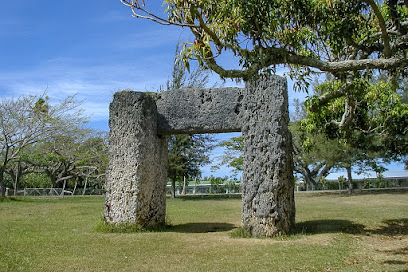
ʻEua National Park
Discover the natural wonders of ʻEua National Park, a pristine paradise in Tonga filled with hiking trails, diverse wildlife, and breathtaking scenery.
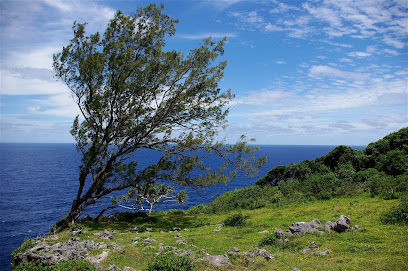
Hufangalupe
Discover the beauty of Hufangalupe, an iconic bridge in Fua'amotu offering stunning views and a touch of Tongan culture.
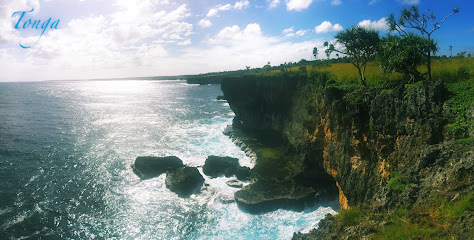
Monument
Explore the Monument of Nuku'alofa, a vital landmark showcasing Tonga's rich cultural heritage and historical significance in the heart of the capital.
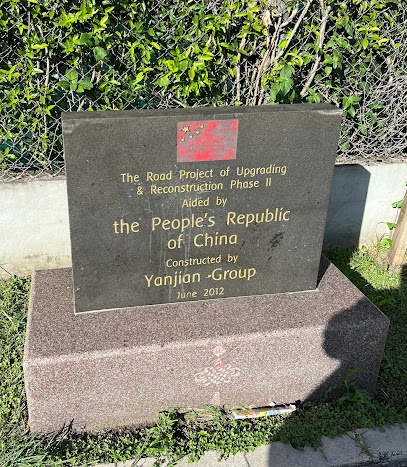
Unmissable attractions to see
Mapu'a Vaea Blowholes
Experience the breathtaking beauty of Mapu'a Vaea Blowholes in Houma, Tonga, where nature's power meets scenic coastal landscapes.
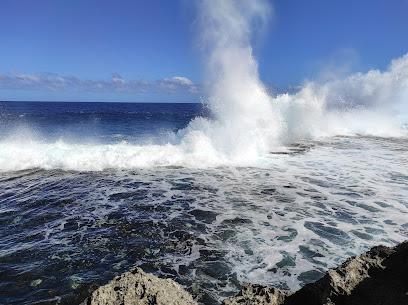
Anahulu Cave
Explore Anahulu Cave in Haveluliku, a stunning natural wonder filled with cultural significance, limestone formations, and crystal-clear waters.
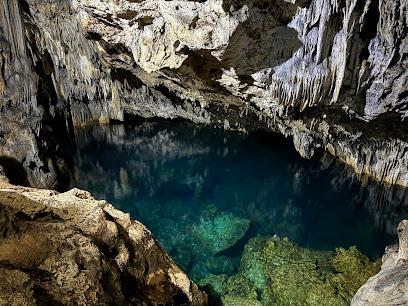
Royal Palace Of Tonga
Explore the Royal Palace of Tonga, a stunning historical attraction in Nuku'alofa that showcases the beauty and heritage of Tongan royalty.
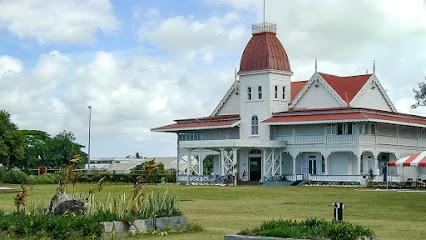
Royal Tombs
Discover the rich history of Tonga at the Royal Tombs in Nuku'alofa, a significant landmark steeped in royal heritage and cultural significance.
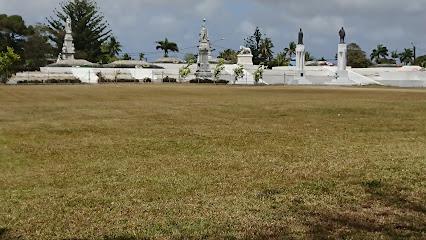
3 Headed Coconut
Explore the unique wonder of the 3 Headed Coconut in Matahau, Tonga, a stunning tourist attraction showcasing nature's artistry.
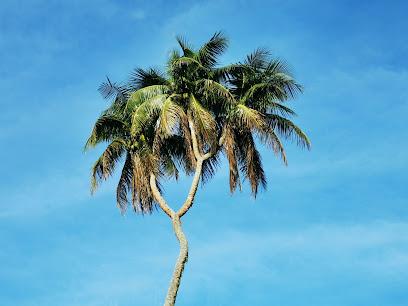
Nuku'alofa Tonga Temple
Discover the serene beauty and spiritual significance of the Nuku'alofa Tonga Temple, a peaceful haven in the heart of Tonga's lush landscapes.
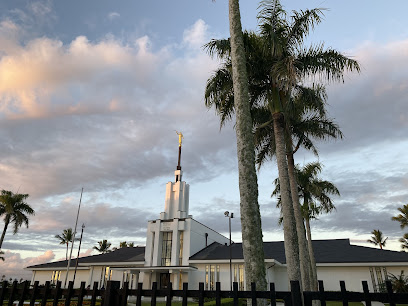
Ha'atafu Beach
Experience the untouched beauty of Ha'atafu Beach in Tonga, where golden sands meet vibrant waters, perfect for relaxation and adventure.
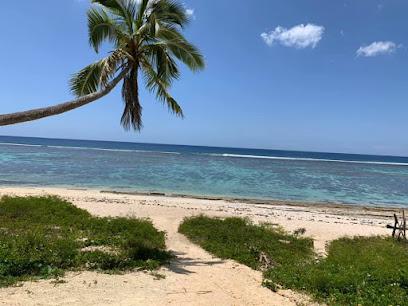
Captain Cook Landing Site
Visit the Captain Cook Landing Site in Alaki, a historic landmark where exploration meets stunning natural beauty in Tonga.
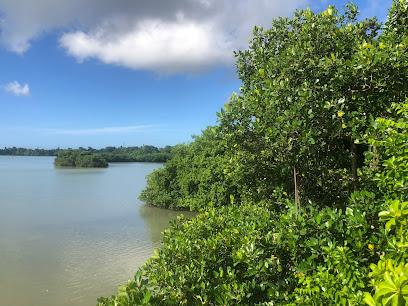
Langafonua Handicraft Centre and Gallery
Discover the vibrant artistry of Tonga at Langafonua Handicraft Centre and Gallery, featuring unique handcrafted treasures and local artisan displays.
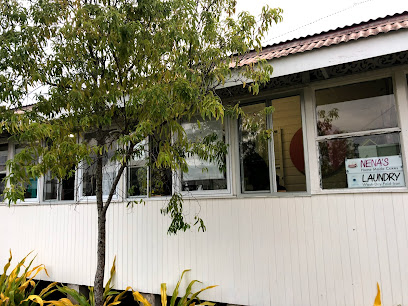
Teta Tours
Discover the beauty and culture of Tonga with Teta Tours, your premier tour operator for unforgettable island adventures.
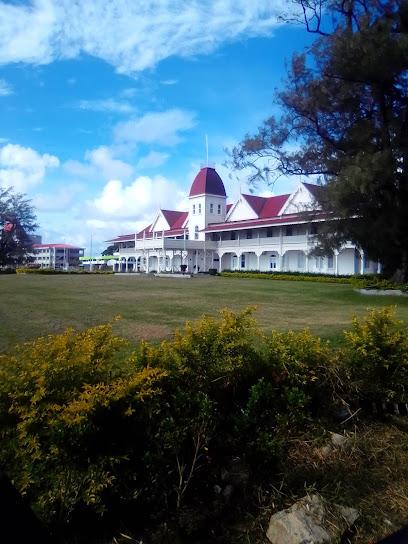
St Mary's Cathedral
Discover the architectural beauty and spiritual serenity of St Mary's Cathedral in Nuku'alofa, a must-visit for travelers exploring Tonga.

Essential places to dine
Coffee Post
Discover Coffee Post in Maufanga, Nuku'alofa - where exceptional Tongan coffee meets warm hospitality.
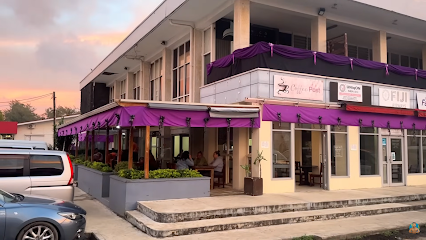
Little Italy Hotel
Experience authentic Italian dining and warm hospitality at Little Italy Hotel in Nuku'alofa, Tonga—your perfect getaway destination.

Friends Cafe
Discover culinary delights at Friends Cafe in Nuku'alofa - where local flavors meet warm hospitality.
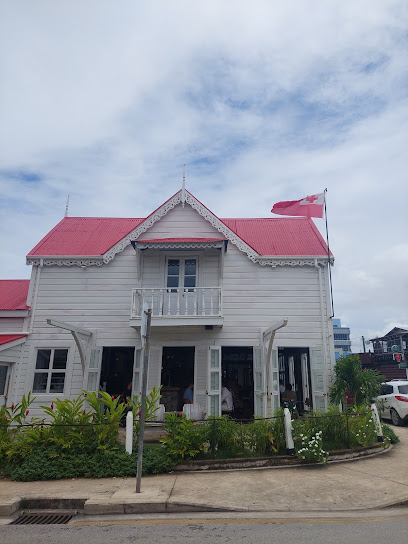
Cafe Escape
Experience the vibrant flavors of Tonga at Cafe Escape, where exceptional coffee meets delicious local cuisine in a cozy atmosphere.
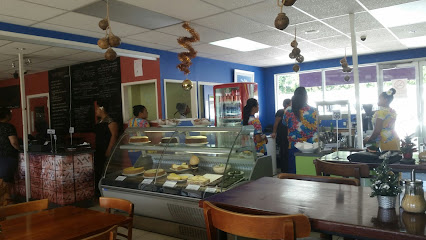
Billfish Bar and Restaurant
Experience authentic Tongan cuisine at Billfish Bar and Restaurant in Nuku'alofa - where every meal is a taste of paradise.
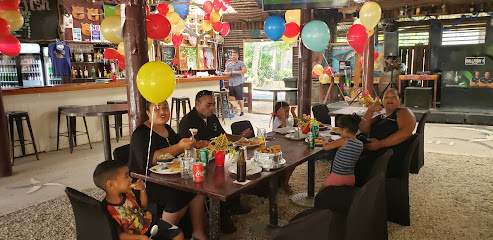
Chef Zero Restaurant
Discover authentic Tongan cuisine at Chef Zero Restaurant in Nuku'alofa - a must-visit culinary destination for every traveler.
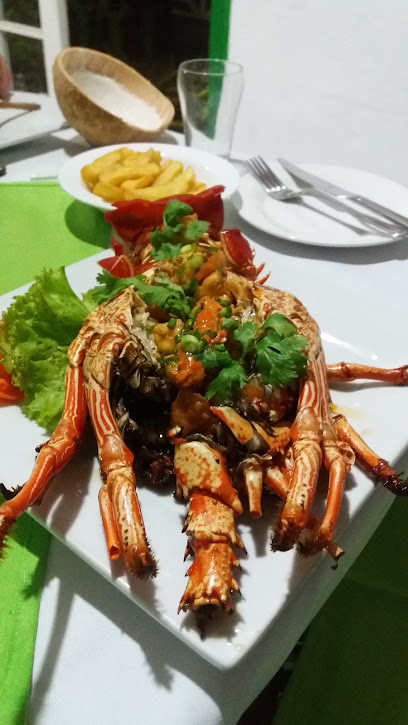
The TOP Restaurant and Lounge
Discover a culinary paradise at The TOP Restaurant and Lounge in Nuku'alofa - where local flavors meet exquisite dining experiences.
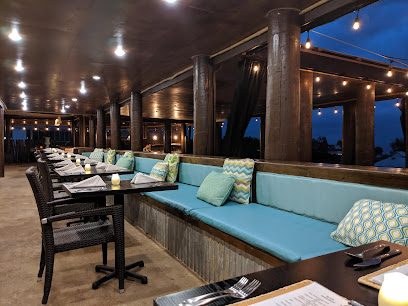
Mum's Cafe Nukualofa
Experience authentic Tongan flavors at Mum's Cafe in Nuku'alofa – where every meal feels like home.
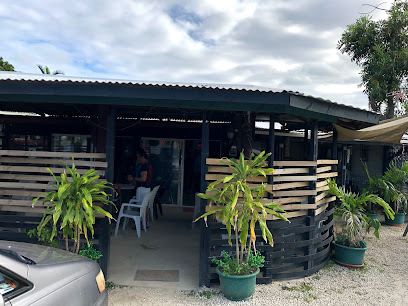
Ngutulei Bar & Restaurant
Experience authentic Tongan cuisine at Ngutulei Bar & Restaurant in Nuku'alofa - where flavor meets culture.
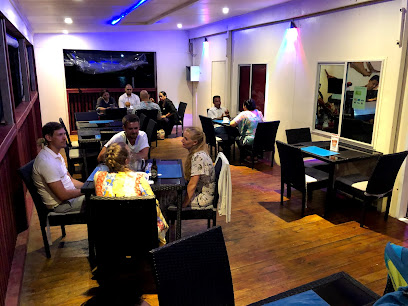
Young’s Kitchen
Discover authentic Tongan cuisine at Young's Kitchen in Nuku'alofa - where every dish tells a story.
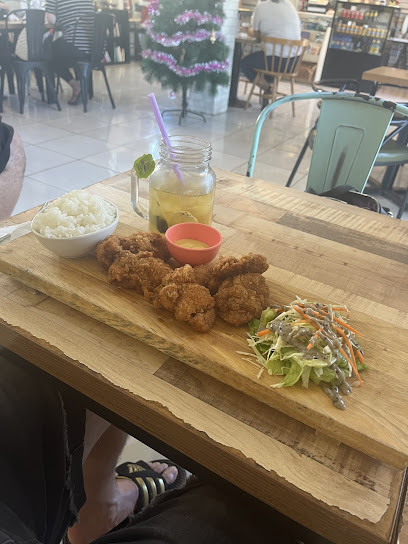
The Waterfront Cafe
Experience authentic Tongan flavors at The Waterfront Cafe with breathtaking ocean views in Nuku'alofa.
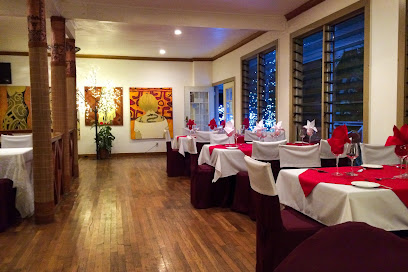
Nauti Ruby's Bar & Restaurant
Discover Nauti Ruby's Bar & Restaurant: A vibrant waterfront destination in Nuku'alofa offering delicious food and drinks amidst stunning ocean views.
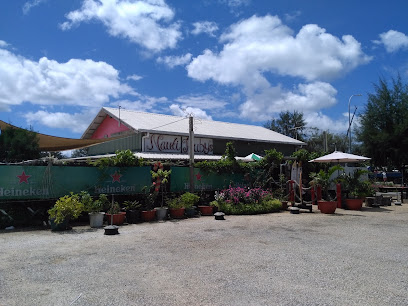
Sabrina's Chicken Vilovilo
Discover authentic Tongan flavors at Sabrina's Chicken Vilovilo - where every bite tells a story of culinary tradition.
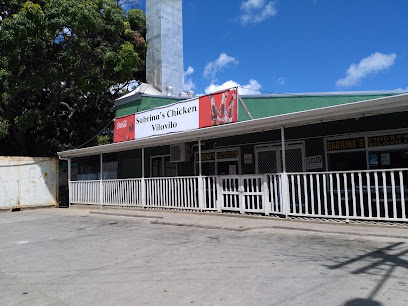
Cottage Breeze Restaurant
Experience authentic Tongan flavors at Cottage Breeze Restaurant in Nuku'alofa - where culinary delights meet stunning ocean views.
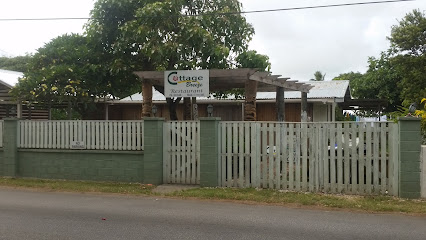
Tropical Taste
Experience authentic Tongan cuisine at Tropical Taste in Nuku'alofa - a culinary journey through Tonga's rich flavors awaits.

Markets, malls and hidden boutiques
Tanoa International Dateline Hotel
Discover the beauty of Tonga at Tanoa International Dateline Hotel, where comfort meets culture in a stunning oceanfront setting.

Talamahu Market
Discover the flavors and culture of Tonga at Talamahu Market, a vibrant hub for fresh produce and local handicrafts.
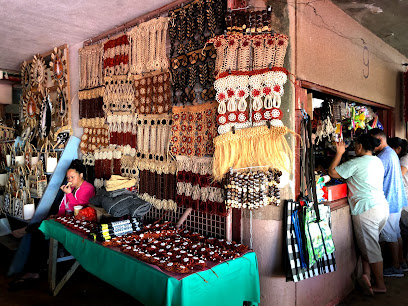
Vuna Wharf
Experience the tranquil beauty of Vuna Wharf, Nuku'alofa's main cruise port, blending stunning views, local culture, and delicious cuisine.
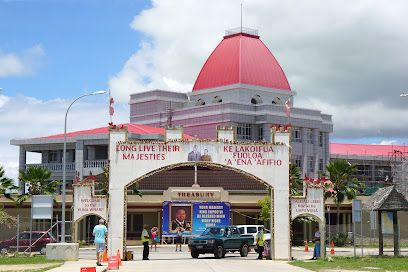
Winnies Bed & Breakfast
Experience the warm hospitality and serene surroundings at Winnies Bed & Breakfast in Nuku'alofa, the perfect retreat for travelers in Tonga.

Costlow Supermarket
Explore Costlow Supermarket in Pea, Tonga for a diverse selection of local produce and unique souvenirs to enhance your travel experience.
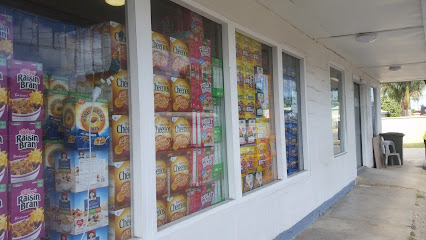
Hiki 'O Tonga
Discover Tongan culture and craftsmanship at Hiki 'O Tonga, Nuku'alofa's must-visit shopping mall for unique local goods.
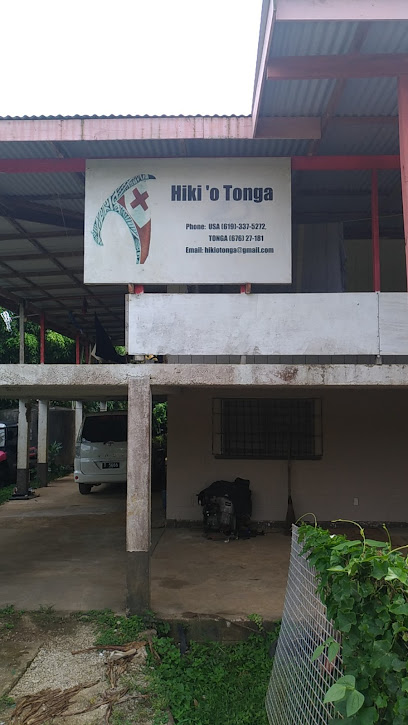
EZ TONGA ONLINE SHOPPING
Explore the essence of Tonga at EZ Tonga Online Shopping, where local goods meet convenience and cultural richness.

Tungi Colonnade Hotel
Discover the warmth of Tongan hospitality at Tungi Colonnade Hotel, your gateway to the beauty and culture of Nuku'alofa.

Langafonua Handicraft Centre and Gallery
Immerse yourself in Tongan culture at Langafonua Handicraft Centre and Gallery, showcasing exquisite local artwork and handicrafts.
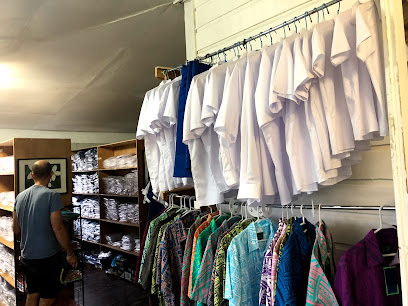
Fakafeta'i Store
Experience authentic Tongan hospitality at Fakafeta'i Store in Nuku'alofa with local products and friendly service.
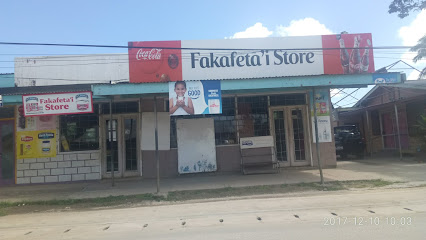
Leiola
Explore a diverse selection of local and international beers at Leiola, the premier beer store in Nuku'alofa, Tonga.
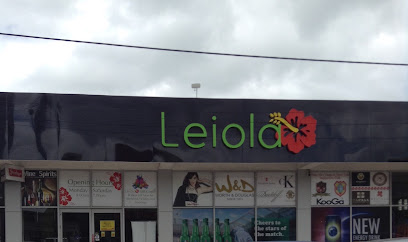
Le-Ata Tonga
Explore the vibrant fashion culture of Tonga at Le-Ata Tonga, your ultimate boutique destination in Nuku'alofa for unique clothing and accessories.
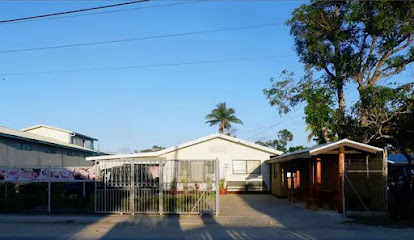
Narottam's
Discover the vibrant local fashion at Narottam's in Nuku'alofa, your gateway to authentic Tongan clothing and unique souvenirs.
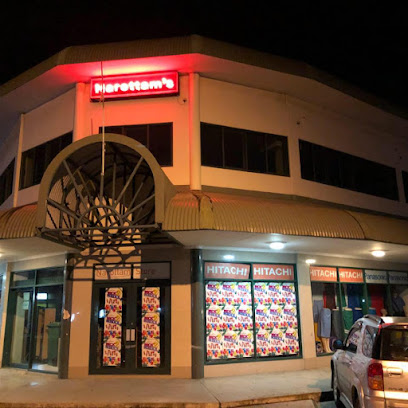
Jones Travel & Tours
Discover the beauty of Tonga with personalized tours and expert guidance at Jones Travel & Tours in Nuku'alofa.

Anana Chinese store
Explore the vibrant Anana Chinese Store in Nuku'alofa - a cultural shopping destination filled with unique Chinese goods and local flavors.

Essential bars & hidden hideouts
Coffee Post
Experience the best coffee in Tonga at Coffee Post, a cozy café in Nuku'alofa offering exceptional brews and delightful pastries.
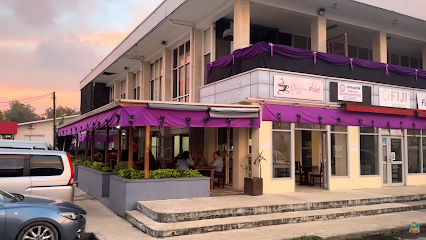
Little Italy Hotel
Savor the best of Italian cuisine at Little Italy Hotel, a culinary gem in Nuku'alofa, Tonga, blending authentic flavors with local hospitality.

Cafe Escape
Discover the rich flavors of Tonga at Cafe Escape, where every sip of coffee and bite of food tells a story.
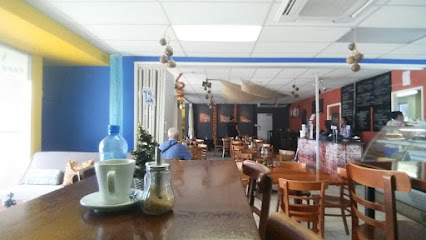
Friends Cafe
Experience the vibrant flavors of Tonga at Friends Cafe, a must-visit spot in Nuku'alofa for delicious meals and local hospitality.
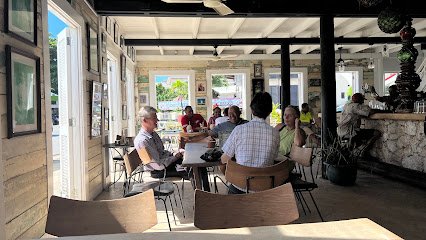
Billfish Bar and Restaurant
Discover the vibrant culinary scene of Nuku'alofa at Billfish Bar and Restaurant, where fresh seafood meets lively Tongan hospitality.
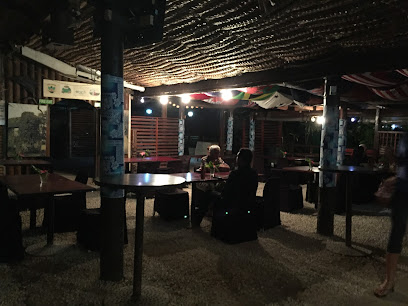
Seaview Lodge
Experience tranquility at Seaview Lodge, a serene indoor lodging in Nuku'alofa, with breathtaking ocean views and warm Tongan hospitality.

The TOP Restaurant and Lounge
Experience the vibrant flavors of Tongan cuisine at The TOP Restaurant and Lounge, the culinary heart of Nuku'alofa.
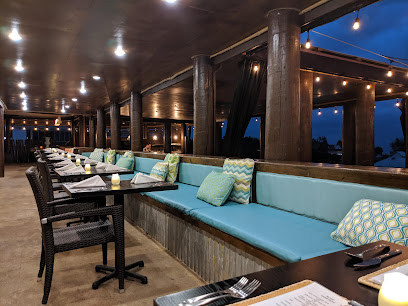
Mum's Cafe Nukualofa
Experience authentic Tongan cuisine and warm hospitality at Mum's Cafe in Nuku'alofa, where every meal is a delightful celebration of local flavors.
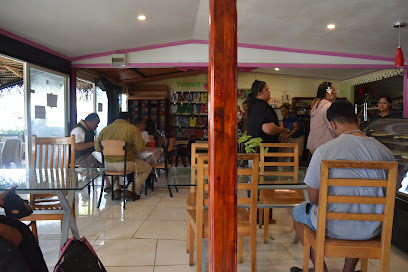
Vuna Wharf
Discover the serene charm of Vuna Wharf, where stunning ocean views meet vibrant local culture in the heart of Nuku'alofa.
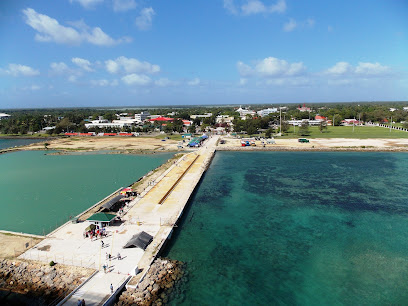
Lunarossa Deli
Lunarossa Deli: Savor the authentic tastes of Tonga with fresh takeout options in Nuku'alofa, perfect for any traveler on the go.
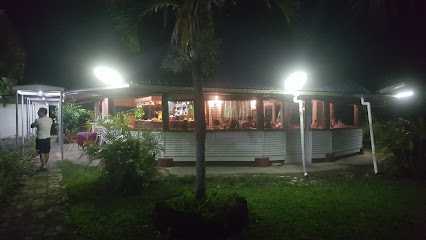
Ngutulei Bar & Restaurant
Discover the essence of Tonga with delicious local cuisine and vibrant atmosphere at Ngutulei Bar & Restaurant in Nuku'alofa.
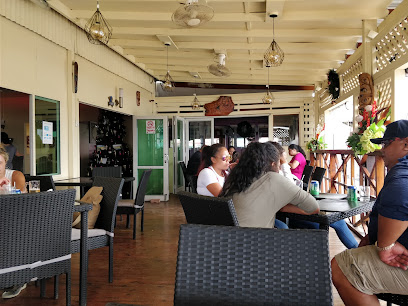
Young’s Kitchen
Experience authentic Tongan flavors at Young’s Kitchen in Nuku'alofa, where each dish is a taste of the islands' vibrant culinary heritage.
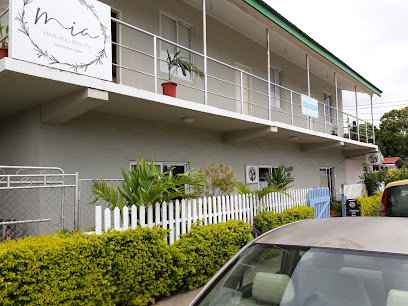
Sabrina's Chicken Vilovilo
Experience the authentic taste of Tongan barbecue at Sabrina's Chicken Vilovilo, a culinary gem in Nuku'alofa offering delicious grilled chicken and warm hospitality.
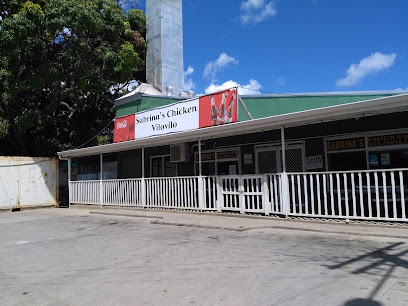
Nauti Ruby's Bar & Restaurant
Experience the vibrant nightlife of Tonga at Nauti Ruby's Bar & Restaurant, where delicious local flavors meet stunning waterfront views.
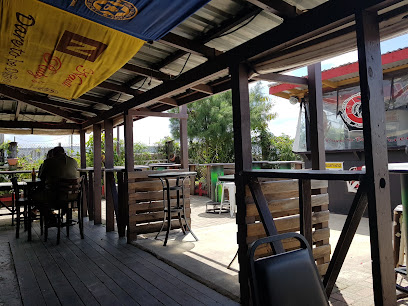
Local Phrases
-
- HelloMalo e lelei
[mah-loh eh leh-leh] - GoodbyeNofo a
[noh-foh ah] - YesʻIo
[ee-oh] - NoʻIkai
[ee-kai] - Please/You're welcomeFakaʻilonga
[fah-kah-ee-lohn-gah] - Thank youMālō
[mah-loh] - Excuse me/SorryFakamolemole
[fah-kah-moh-leh-moh-leh] - How are you?ʻEku fai ha?
[eh-koo fai hah] - Fine. And you?ʻEku fai maʻu?
[eh-koo fai mah-oo] - Do you speak English?Te ke faifai ʻi he lea fakapālangi?
[teh keh fai-fai ee heh leh-ah fah-kah-pah-lahngi] - I don't understandTe u lava ke maʻu
[teh oo lah-vah keh mah-oo]
- HelloMalo e lelei
-
- I'd like to see the menu, pleaseʻEku fakaʻilo ʻa e meini, fakamolemole
[eh-koo fah-kah-ee-loh ah eh meh-ee-nee fah-kah-moh-leh-moh-leh] - I don't eat meatTe uai ʻi he meʻa
[teh oo-ah ee heh meh-ah] - Cheers!Mālō
[mah-loh] - I would like to pay, pleaseʻEku fakatā ʻofa, fakamolemole
[eh-koo fah-kah-tah oh-fah fah-kah-moh-leh-moh-leh]
- I'd like to see the menu, pleaseʻEku fakaʻilo ʻa e meini, fakamolemole
-
- Help!Fakamālō!
[fah-kah-mah-loh] - Go away!Haʻele
[hah-eh-leh] - Call the Police!Fakatapu ki he Poilisi!
[fah-kah-tah-poo kee heh poh-ee-lee-see] - Call a doctor!Fakatapu ki he loke!
[fah-kah-tah-poo kee heh loh-keh] - I'm lostKuo ʻalu
[kwoh ah-loo] - I'm illKuo mate
[kwoh mah-teh]
- Help!Fakamālō!
-
- I'd like to buy...ʻEku fakatau...
[eh-koo fah-kah-tow] - I'm just lookingʻOku ou ʻikai fakatau
[oh-koo oh ee-kai fah-kah-tow] - How much is it?Fēfē hange haʻo?
[feh-feh hahng-eh hah-oh] - That's too expensiveʻIo, kuo ʻoatu
[ee-oh kwoh oh-ah-too] - Can you lower the price?Te ke hiki ʻoatu e totongi?
[teh keh hee-kee oh-ah-too eh toh-tohngi]
- I'd like to buy...ʻEku fakatau...
-
- What time is it?Ko e hua hange haʻo?
[koh eh hoo-ah hahng-eh hah-oh] - It's one o'clockKo e taha
[koh eh tah-hah] - Half past (10)Ko e valu
[koh eh vah-loo] - MorningTokoni
[toh-koh-nee] - AfternoonʻOtā
[oh-tah] - EveningMalamalama
[mah-lah-mah-lah-mah] - YesterdayʻAho nekē
[ah-hoh neh-kay] - TodayʻOku
[oh-koo] - TomorrowʻApōpō
[ah-poh-poh] - 1Taha
[tah-hah] - 2Fua
[foo-ah] - 3Tolu
[toh-loo] - 4Fā
[fah-ah] - 5Nima
[nee-mah] - 6Ono
[oh-noh] - 7Fitu
[fee-too] - 8Valu
[vah-loo] - 9Hiva
[hee-vah] - 10Hongofulu
[hoh-ngo-foo-loo]
- What time is it?Ko e hua hange haʻo?
-
- Where's a/the...?Ko e fehuʻi
[koh eh feh-hoo-ee] - What's the address?Ko e tuʻa
[koh eh too-ah] - Can you show me (on the map)?Te ke fakamonū mai au (ʻi he mēpe)?
[teh keh fah-kah-moh-noo mah-ee ow (ee heh meh-peh)] - When's the next (bus)?ʻE hia pe e taʻu lahi?
[eh hee-ah peh eh tah-oo lah-hee] - A ticket (to ....)ʻE he kikite (ki ...)
[eh heh kee-kee-teh kee]
- Where's a/the...?Ko e fehuʻi
History of Neiafu
-
Neiafu, located in the Vava'u island group, has been inhabited for centuries. Archaeological evidence suggests that the first settlers arrived in the region around 3,000 years ago. These early Polynesian navigators established the foundations of what would become a thriving maritime culture.
-
In the late 18th century, European explorers began to arrive in the Pacific. Neiafu was first visited by the Dutch explorer Abel Tasman in 1643. Later, in 1781, Spanish navigator Francisco Mourelle de la Rúa also visited Vava'u. These early contacts marked the beginning of Neiafu's integration into global exploration narratives.
-
During the early 19th century, Tonga was unified under the leadership of King George Tupou I. Neiafu, as part of the Vava'u islands, played a crucial role in this unification process. The centralization of power helped to stabilize the region and fostered a period of growth and development.
-
Christian missionaries, particularly from the London Missionary Society, arrived in Neiafu in the early 19th century. Their efforts led to the widespread conversion of the local population to Christianity. This religious shift had profound impacts on the social and cultural dynamics of Neiafu and the broader Vava'u region.
-
By the mid-19th century, Neiafu had developed into a significant trade hub due to its strategic location in the Pacific. Whaling ships, traders, and missionaries frequented its shores. The town's economy flourished as it became a central point for the exchange of goods and services in the region.
-
During World War II, Neiafu, like much of Tonga, played a role in the Allied war effort. The presence of American troops in the region brought about infrastructural improvements and increased global awareness of Neiafu. The war period also saw the construction of various facilities that would benefit the local population post-war.
-
Today, Neiafu is a vibrant town that blends traditional Tongan culture with modern influences. It is a popular destination for tourists, especially those interested in sailing and marine activities. The town's scenic harbor, friendly locals, and rich history make it a unique and captivating place to visit.
Neiafu Essentials
-
Neiafu, located in the northern Vava'u island group of Tonga, is accessible primarily by air and sea. The nearest airport is Vava'u International Airport (VAV), which receives domestic flights from Tongatapu's Fua'amotu International Airport (TBU) in Nuku'alofa. From the airport, it's a short taxi or shuttle ride into the town of Neiafu. For those traveling by sea, Neiafu's Port of Refuge is a popular destination for yachts and cruise ships. Regular ferry services also connect Neiafu to other islands in Tonga.
-
Neiafu is a small town, and many of its attractions are within walking distance. Local taxis are available and can be hired for trips around the island. Car rentals are also an option for those wanting to explore Vava'u at their own pace. Additionally, bicycles and scooters can be rented for convenient and eco-friendly travel. Public buses operate on a limited schedule but are an affordable way to get around. Boat tours and charters are popular for exploring the surrounding islands and marine attractions.
-
The official currency in Tonga is the Pa'anga (TOP). Credit cards are accepted at most hotels, restaurants, and larger shops, but it is advisable to carry cash for smaller establishments and markets. ATMs are available in Neiafu, but it's good practice to have enough cash on hand, especially when traveling to more remote areas. Currency exchange services are limited, so it's recommended to exchange money at the airport or in Nuku'alofa before arriving in Neiafu.
-
Neiafu is generally a safe destination for tourists. However, as with any travel location, it's important to take standard safety precautions. Avoid walking alone at night in unfamiliar areas and keep an eye on your belongings in crowded places. While Neiafu does not have high-crime areas specifically targeting tourists, it's always best to stay vigilant and aware of your surroundings. Petty theft can occur, so secure your valuables and avoid displaying large amounts of cash or expensive items.
-
In case of emergency, dial 911 for immediate assistance. Neiafu has a local police station and medical facilities available to assist tourists. It's recommended to have travel insurance that covers medical emergencies. For minor health issues, there are pharmacies in the town where you can purchase over-the-counter medications. The main hospital in Neiafu can handle most medical situations, but more serious cases may require evacuation to Nuku'alofa or overseas.
-
Fashion: Do dress modestly, especially when visiting villages and religious sites. Avoid wearing revealing clothing. Religion: Do respect local customs and traditions; always ask for permission before taking photos inside churches. Public Transport: Do be respectful and courteous to drivers and fellow passengers. Don't eat or drink on public transport. Greetings: Do greet people with a friendly 'Malo e lelei' (hello). Respectful handshakes are common. Eating & Drinking: Do try local dishes and accept food offerings graciously. Don't refuse hospitality, as it is considered impolite.
-
To experience Neiafu like a local, visit the local markets where you can buy fresh produce and traditional Tongan crafts. Engage with locals, as they are often friendly and willing to share stories about the island's culture and history. Don't miss the opportunity to join a kava ceremony, a traditional Tongan social event. For a unique experience, take a whale-watching tour during the migration season to see humpback whales up close. Exploring the underwater caves and snorkeling in the crystal-clear waters around Neiafu are also highly recommended.
Nearby Cities to Neiafu
-
Things To Do in Ha'apai
-
Things To Do in Nuku'alofa
-
Things To Do in Foa
-
Things To Do in Pangai
-
Things To Do in Vava'u
-
Things To Do in Ha'ano
-
Things To Do in Kolovai
-
Things To Do in Eua
-
Things To Do in Levuka
-
Things To Do in Nausori
-
Things To Do in Suva
-
Things To Do in Rakiraki
-
Things To Do in Savusavu
-
Things To Do in Sigatoka
-
Things To Do in Labasa






